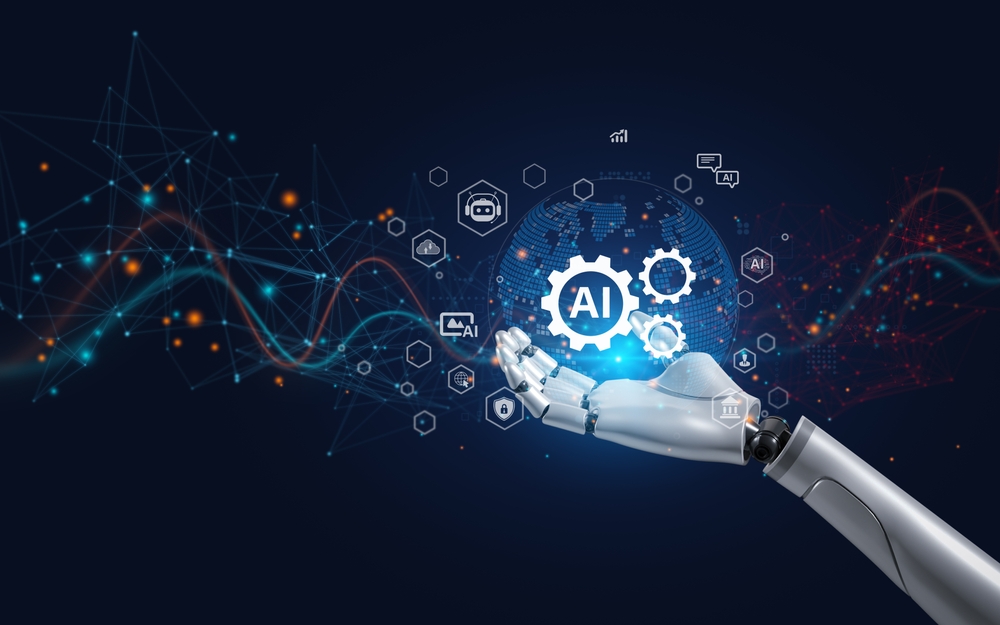The World Economic Forum cautions about the adverse effect of artificial intelligence on information integrity, healthcare, and labour markets.
The World Economic Forum (WEF) report monitors the most severe risks people might encounter over the next ten years, including geopolitical power changes, climate change, technological acceleration, and human migration.
Effects of AI Technology
Generally, this year’s edition reveals a ‘mainly adverse view for the globe over the next two years that is anticipated to aggravate in the next ten years.’
However, artificial intelligence (AI) and technology generally come up through this report, especially when discussing ‘societal polarization.’ This concept rose to a top-three danger and was ranked ninth in long-term risks.
The report cautions that as polarization expands and technological dangers stay unconstrained, ‘truth’ will come under pressure. The World Economic Forum report explores artificial intelligence’s varied effects.
For instance, it highlights the ethical utilization of information, noting possible unfairness in medical research and development (R&D) that supports more affluent populations. According to the authors, new healthcare solutions, early diagnosis, and medical R&D might focus on the rich.
Additionally, they mirrored most of the disapproval directed at the longevity movement’s billionaire leaders. The report also shows that a blend of artificial intelligence tools might enhance the development of more grave and targeted biological weapons.
Factors Contributing to High Adoption of AI
They illustrate broader concerns regarding artificial intelligence expanding economic inequalities, particularly between high- and low-income countries. Quantum computing is another artificial intelligence-heavy flagged as a possible disruptor.
In this case, it threatens the present technology regime and presents considerable security risks. In the geopolitics sphere, in the meantime, the incorporation of artificial intelligence into military applications will put pressure on human rights and ethics, especially concerning autonomous weapons systems.
According to the report, quantum computing might break and recreate monopolies over computing power, posing radical dangers in its development. So far, criminals have launched harvest attacks, also called ‘store now, decrypt later (SNDL)’ attacks, as they expect a cryptographically significant computer.
Most of the World Economic Forum warnings concerning artificial intelligence were linked to deepfakes. With AI-created content’s significant growth, distinguishing reality from fiction has become challenging.
As such, misinformation and disinformation introduced via ‘imposter, untrue, made-up, and manipulated content’ are categorized as international risks. This is because of their capability to change ‘public view significantly towards doubt in authority and facts.’
The report also discusses the effect of artificial intelligence on the international job market, envisaging considerable disruptions in different sectors. This explicit matter has been contentious across various sectors.
In this case, artificial intelligence’s quick substitution of people has resulted in a worldwide labour condition, which some experts believe might have grave consequences for later generations.
The World Economic Forum notes that despite artificial intelligence’s capability to develop new job opportunities, it might also result in significant job losses that might worsen economic volatility.
The organization advocates for improved public education, awareness of artificial intelligence, and its regulations to mitigate risks.
Industry Leader Calls for Responsible Use of AI
Artificial intelligence is currently a fierce debate and worry among international leaders. The latest international declaration on artificial intelligence safety, signed by leaders from the European Union and 29 nations, highlights the vastly known urgency to manage this upcoming technology.
The UK opted for a different route by revealing it will not control artificial intelligence soon. Instead, it will focus on innovation over restrictions.
However, it recently began investigating if the collaboration between OpenAI and Microsoft might contravene antitrust regulation. Undeniably, the World Economic Forum report gives caution regarding the concentration of technological power, which reflects the issues raised by Antonio Guterres, the United Nations Secretary-General.
In 2023, he cautioned that ‘artificial intelligence proficiency is concentrated in a few nations and firms.’ This might deepen international inequalities and convert ‘digital divides into chasm.’
